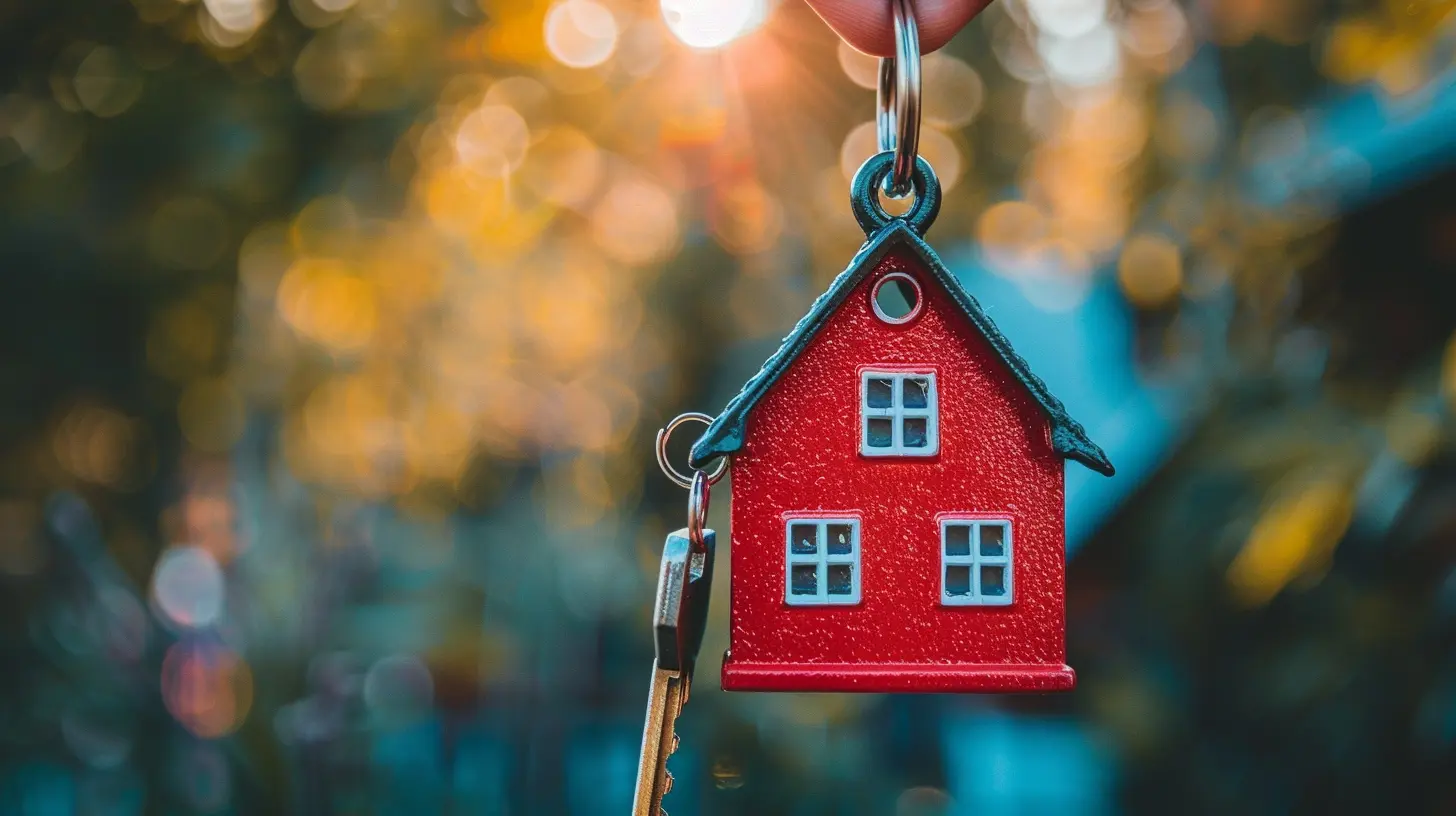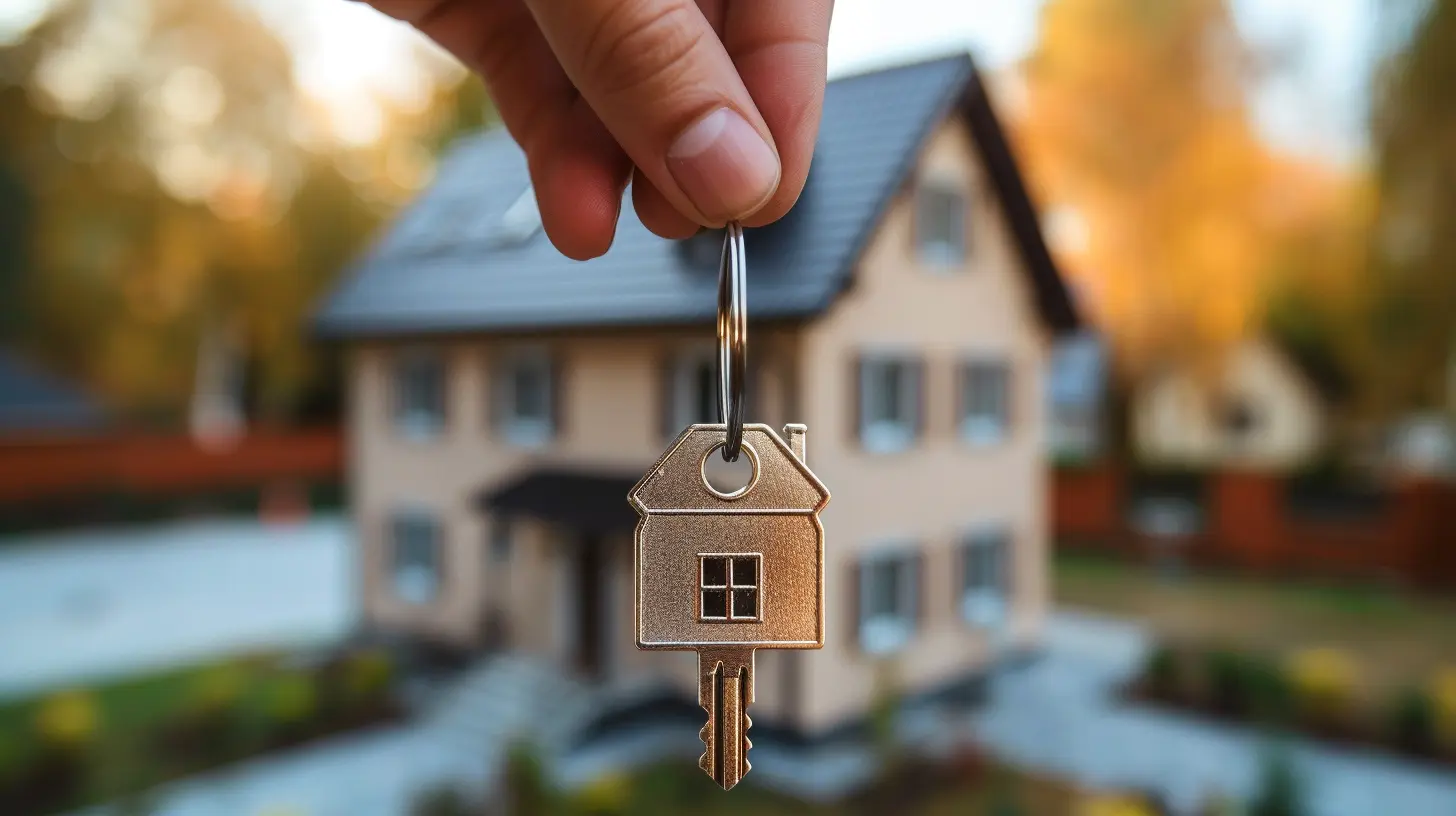What Sellers Can Learn from Attending Open Houses
26 October 2025
Selling a home is more than just putting up a "For Sale" sign and hoping for the best. If you really want to maximize your selling price and attract serious buyers, you need to understand what makes a home appealing. And what better way to do that than by stepping into the shoes of a buyer?
Attending open houses—yes, even if you’re not planning on buying—can be an eye-opening experience. It gives you a front-row seat to see what works, what doesn’t, and what buyers are looking for. It’s like doing undercover research on your competition while also learning how to improve your own home’s selling potential.
So, what exactly can sellers learn from attending open houses? Let’s break it down. 
1. Understanding Buyer Preferences
Attending open houses lets you see firsthand what today’s buyers are looking for. Do they gravitate toward open-concept kitchens? Are they drawn to smart home features? What color schemes are trending? Taking notes on these details can help you make informed decisions about any last-minute upgrades or staging efforts before listing your home.What to Observe:
- Which features make buyers stop and say, “Wow!”- What turns buyers off (e.g., outdated wallpaper, weird layouts, cluttered spaces)?
- How long visitors stay in each room and what they focus on first.
By paying attention to these reactions, you’ll get valuable insight into what boosts a home’s desirability. 
2. Evaluating the Competition
Your home isn’t the only one buyers will be considering, so attending open houses helps you gauge the competition. You’ll be able to see how your home stacks up against others in your neighborhood or price range.Key Comparisons to Make:
- Size and layout differences- Recent upgrades or renovations
- Listing prices versus perceived value
- Overall condition and maintenance
If the homes you visit are significantly more modern or well-maintained, you may need to reconsider your pricing or invest in minor updates to stay competitive. 
3. Learning from Real Estate Agents
Open houses are usually hosted by real estate agents who know the market inside and out. This is your chance to pick their brains—without even revealing that you’re a seller.Key Questions to Ask Agents:
- What features do buyers seem to love most about this home?- How has the local market been performing?
- What kind of feedback have buyers given about the price?
You don’t have to interrogate them, but a casual chat can provide valuable insights into buyer behavior and pricing strategies. 
4. Spotting Staging and Presentation Tricks
Staging a home is an art—it’s all about making a space feel inviting and move-in ready. By attending open houses, you can see what staging techniques are being used to create a desirable atmosphere.What to Take Note Of:
- Color schemes: Are neutral tones being used to appeal to a broader audience?- Furniture placement: How is furniture arranged to maximize space?
- Décor: Are personal items minimized to make the home feel more "neutral"?
Good staging can make even a modest home feel luxurious, and you can replicate similar techniques in your own home to impress buyers.
5. Understanding Pricing Strategies
Just because a home is listed at a certain price doesn’t mean buyers see the value in it. Attending open houses allows you to see how different pricing strategies play out in real time.What to Analyze:
- Do buyers seem hesitant about the price, or are they enthusiastic?- Are there any price reductions mentioned?
- How does the price compare to the home's condition and features?
This can help you price your own home more effectively, ensuring you’re competitive without undervaluing your property.
6. Noting Common Buyer Concerns
Hearing potential buyers discuss a home’s pros and cons is like getting access to secret market research. Pay attention to their comments and concerns—because chances are, they’ll have similar thoughts about your home.Common Concerns to Listen For:
- "It feels too small" → Is there a way to make your home feel more spacious?- "This kitchen needs updates" → Would minor improvements increase your home’s appeal?
- "The backyard is too bare" → Would adding a few plants or a patio set make a difference?
Understanding what buyers dislike can help you proactively address similar issues in your own home before listing it.
7. Observing How Homes Smell and Feel
Believe it or not, smell and ambiance play a huge role in a buyer’s impression of a home. A house that smells musty or has pet odors can turn people away before they even make it through the front door.Take Mental Notes On:
- Does the home have a pleasant, clean scent?- Is there ambient music or soft lighting to make it feel more inviting?
- Does it feel warm and welcoming, or cold and uninviting?
Small details like lighting, scent, and background noise can make a surprising difference in how buyers feel about a property.
8. Seeing the Impact of Curb Appeal
First impressions matter—buyers start forming an opinion before they even step inside. Open houses give you a chance to evaluate how much curb appeal impacts buyer interest.Pay Attention To:
- Does the home’s exterior look well-maintained?- Is the landscaping neat and inviting?
- Would a fresh coat of paint or new front door make a big difference?
This insight can help you decide if minor exterior improvements are worth the investment before putting your home on the market.
9. Understanding Traffic and Interest Levels
Some open houses are packed with visitors, while others feel like a ghost town. Noticing these patterns can give you an idea of what kind of homes are drawing the most interest.Consider These Factors:
- Are homes in a certain price range getting more foot traffic?- Do updated homes attract more visitors than fixer-uppers?
- Is staging influencing the turnout?
This can help you anticipate the level of interest your home might receive once it’s listed.
10. Assessing Marketing Strategies
How an open house is marketed can impact turnout and buyer interest. Pay attention to how listings are presented, both online and in-person.Key Marketing Elements to Review:
- Are there high-quality listing photos?- Does the online description highlight the home’s best features?
- How is the open house being promoted?
Great marketing can bring in serious buyers, so taking notes on effective strategies can help you attract more attention to your own listing.
Final Thoughts
Attending open houses isn’t just a passive activity—it’s a powerful tool for sellers who want to get an edge in the market. By stepping into the buyer’s shoes, you gain valuable insights into current trends, pricing strategies, and staging techniques.So, before you list your home, take some time to visit a few open houses in your area. You might just pick up some game-changing tips that help you sell faster and for a better price.
all images in this post were generated using AI tools
Category:
Open HousesAuthor:

Elsa McLaurin
Discussion
rate this article
1 comments
Jessica Sweeney
Attending open houses is like speed dating for homes—you're swiping left on overpriced wallpaper and right on that charming breakfast nook. Just don’t forget to bring snacks!
October 28, 2025 at 5:10 AM

Elsa McLaurin
Great analogy! Just like speed dating, open houses let sellers showcase their home's best features to attract the right buyer—snacks or not!


